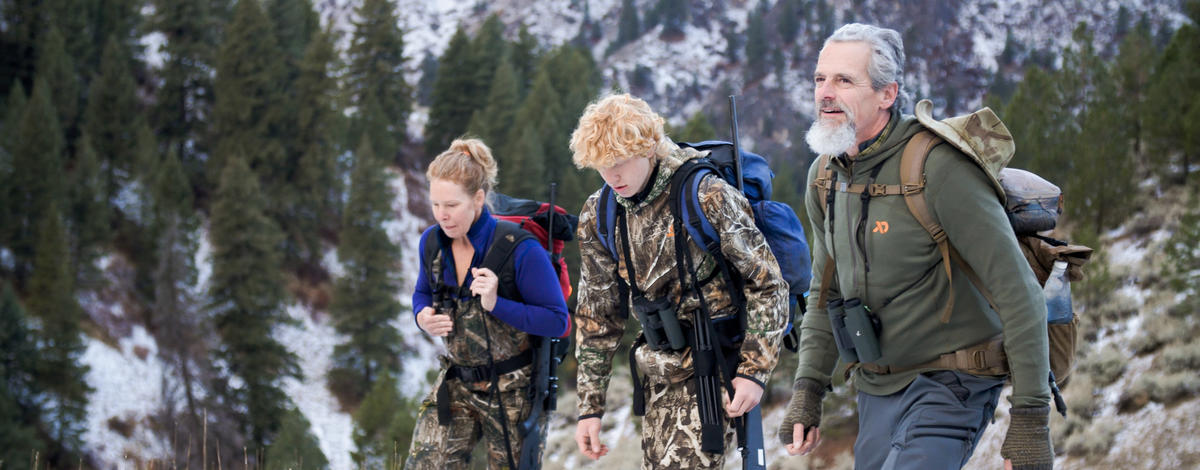Mentoring is woven in the fabric of hunting. For millennia the tradition has been passed down through generations and shared with friends. For the tradition to continue, each generation of hunters are tasked with passing the torch to the next.
Fish and Game's Maiden Hunt Series explores how rewarding it can be for hunters to pass on their passion for the outdoors and shares the stories of new hunters—from completing hunter education and seeking out a mentor to experiencing their first hunt.
Each hunter comes to hunting with a different perspective, background, concerns, and interests. From balancing a love of nature with the emotional experience of harvesting an animal, to following in family footsteps, these short films explore the realities of becoming a hunter and illustrate how hunting is so much more than the harvest.
The first video of this series follows the journey of a mother and son, Gretchen and Henry, as they take on their first deer hunt. Led by mentor Ted Koch, these beginners learn what hunting is all about in hopes of carrying the tradition forward.


